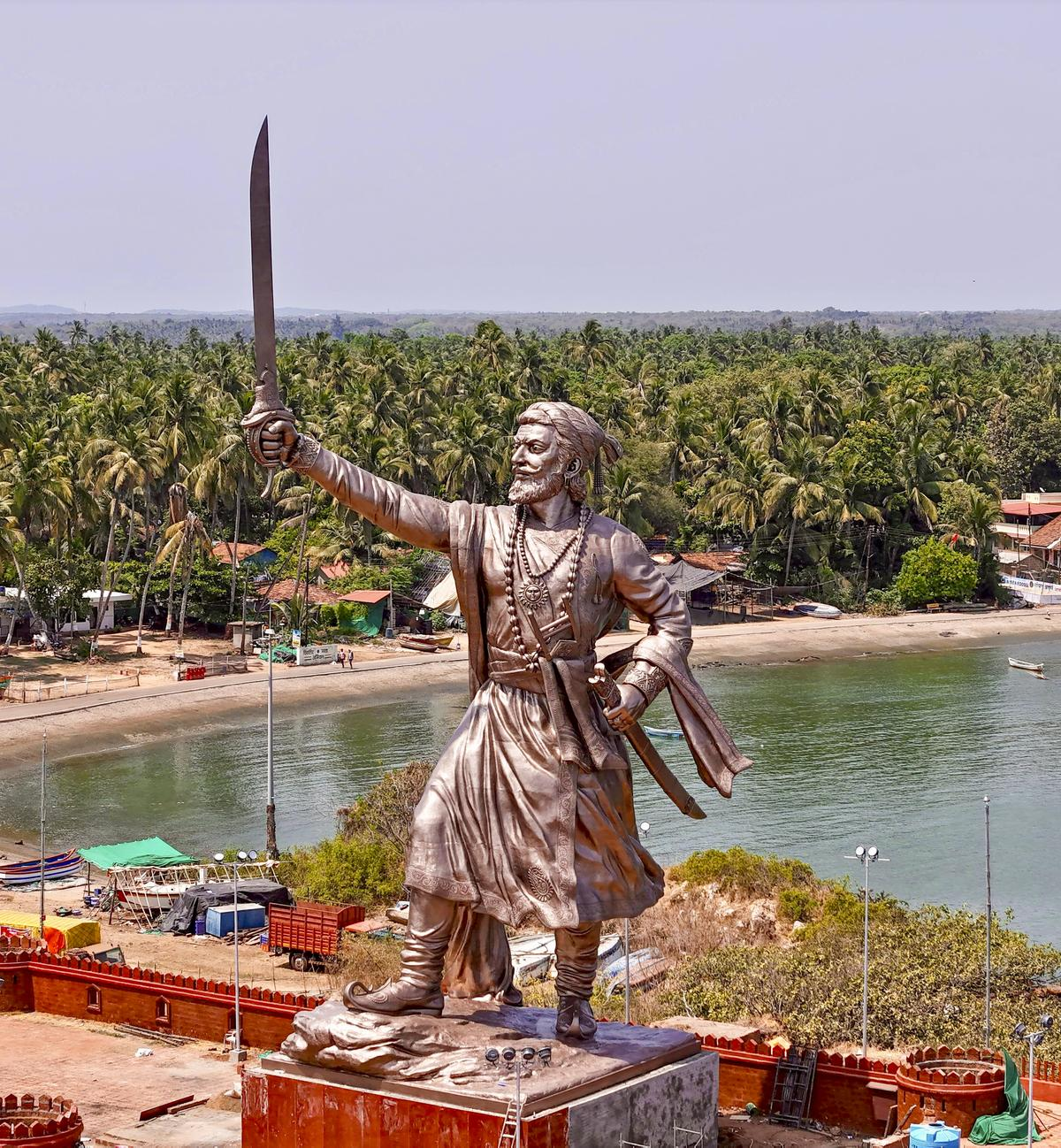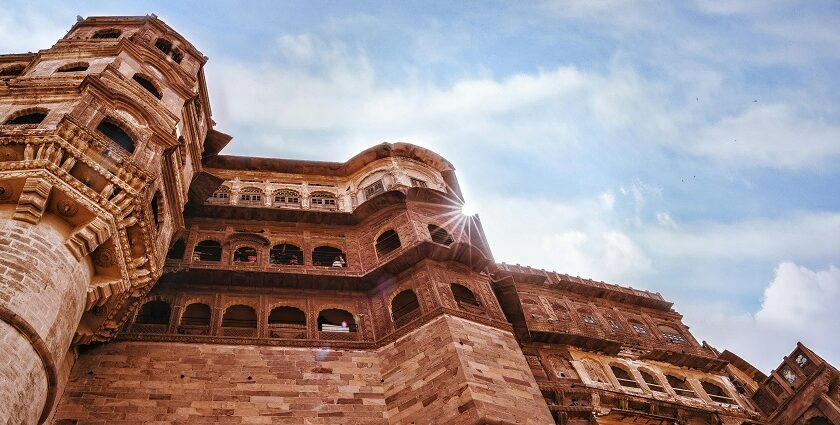Maharashtra
Statue of Shivaji Maharaj at Sindhudurg
- 12 May 2025
- 3 min read
Why in News?
On 11 May 2025, Maharashtra Chief Minister Devendra Fadnavis unveiled a statue of Chhatrapati Shivaji Maharaj at the Rajkot Fort in Sindhudurg.
Key Points
- About the Statue:
- The statue stands 91 feet tall, including a 10-foot pedestrian base, making it the tallest statue of Chhatrapati Shivaji Maharaj in India.
- According to the Chief Minister, the grand statue will inspire future generations and boost tourism by spurring development in the Sindhudurg region.
- The Maharashtra Public Works Department constructed the statue at a cost of Rs 31.75 crore.
- Renowned sculptor Ram Sutar’s company executed the project.
- Engineers used stainless steel framework, M50 grade concrete, and stainless steel bars to build the structure.
- The Indian Institute of Technology (IIT) Mumbai verified the statue’s concept and design for structural safety and durability.
- About Chhatrapati Shivaji Maharaj:
- Born on 19th February 1630, at Shivneri Fort, Pune was a visionary leader from the Bhonsle clan and the founder of the Maratha Empire, known for resisting the Mughal Empire and striving for self-rule.
- Major Battles: Battle of Pratapgad, Battle of Pavan Khind, Sacking of Surat, Battle of Purandar, Battle of Sinhagad, and Battle of Sangamner.
- The Wagh nakh, was used by Shivaji to kill Afzal Khan in the 1659 Battle of Pratapgad.
- Titles: Chhatrapati, Shakakarta, Kshatriya Kulavantas, and Haindava Dharmodhhaarak.
- Administration: Centralized administration with the Ashtapradhan (Council of Eight Ministers), abolished the Jagirdari System, implemented the Ryotwari System, and built a strong naval force for coastal defense.
- Major Battles: Battle of Pratapgad, Battle of Pavan Khind, Sacking of Surat, Battle of Purandar, Battle of Sinhagad, and Battle of Sangamner.
- Shivaji is renowned for his innovative guerrilla warfare tactics, which influenced subsequent rulers and shaped the Maratha Military Landscapes.
- Born on 19th February 1630, at Shivneri Fort, Pune was a visionary leader from the Bhonsle clan and the founder of the Maratha Empire, known for resisting the Mughal Empire and striving for self-rule.
Rajkot Fort
- Chhatrapati Shivaji Maharaj constructed Rajkot Fort between 1664 and 1667 in Malvan, Maharashtra, as part of his coastal defence strategy.
- The fort functioned as a vital military outpost for protecting coastal trade routes and was integrated into the broader Sindhudurg Fort complex.
- Positioned near the Arabian Sea, the fort's robust walls and strategic coastal location reflect the region’s rich maritime heritage and naval foresight under Shivaji’s rule.
- In 1766, the British entered into a treaty with the Chhatrapati of Karveer (a branch of the Maratha royal family).
- As part of this engagement, the British sought permission to establish a shipbuilding yard at Rajkot, highlighting the fort's continued strategic value even in the colonial era.








